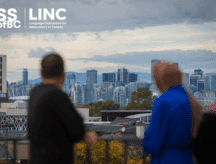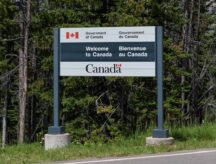How newcomers can bring valuable belongings with them to Canada, without paying taxes or duties
The act of moving to Canada for many often involves the transfer of valuable personal belongings. This is to say nothing of monies which newcomers will need when starting a life in Canada; and which they will likely bring to the country from abroad.
How can newcomers bring these assets with them to Canada, safely and inexpensively? This article covers allowances, methods, and more
What can newcomers bring with them, when coming to Canada?
The Canadian Border Services Agency (CBSA) is the authority that governs Canada’s borders and determines who and what can cross through. When moving to Canada, newcomers may bring personal and household items with them without paying a duty (a government fee imposed on certain goods that enter Canada)—so long as they make a declaration of the items brought with them to a CBSA officer (more on this later).
Discover if You Are Eligible for Canadian Immigration
More specifically, newcomers moving to Canada will usually not need to pay duties on:
- Books;
- Linens;
- Clothes;
- Jewelry;
- Antiques;
- Furniture;
- Silverware;
- Musical instruments;
- Gifts worth CAD $60 or less each;
- Hobby tools and other hobby items;
- Private collections of coins, stamps, or art; and/
- Appliances, such as a stove or refrigerator.
Newcomers may however have to pay duties on:
- Farm equipment;
- Equipment planned for use in:
- Contracting;
- Construction; and/or
- Manufacturing.
- Vehicles planned for business use;
- Items bought on their way to Canada; and/or
- Items that are leased or rented;
- The CBSA does not consider leased or rented items things that you own.
In addition, newcomers may have to pay a duty on any item they bring that has not been used.
Some items have certain conditions on their entry to Canada. These include:
- Wedding gifts, which may be brought without paying duties if couples have owned the gifts before arriving in Canada, and if they:
- Had gotten married within three months of coming to Canada; or
- Plan to marry no later than three months after arriving in Canada.
- Vehicles may be brought to Canada duty-free if they are only for personal use and meet Canadian safety and pollution control standards;
- Jewelry or precious items, which may need greater documentation and description in declarations; and
- Gifts, which may be brought to Canada duty-free if worth $60 CAD or less. Newcomers may have to pay duties on gifts above $60 CAD in value; and cannot import alcohol or tobacco as gifts into Canada.
Some items can be brought into Canada in specific quantities, duty-free, through a personal-use exemption.
Lastly, certain goods are restricted and prohibited, meaning they cannot be brought into Canada, or require special permits to do so.
If newcomers are not sure whether they will have to pay duties on an item, they are advised to bring sales receipts and relevant registration documents with them.
How much money can newcomers bring with them to Canada?
The CBSA requires that whether travelers are entering or leaving Canada, they must declare “any currency (cash), or monetary instruments* valued at CAD $10,000 or more” that is on their person. This amount includes Canadian as well as foreign currency, or a combination of both. What this means is that newcomers can bring a substantial amount of wealth with them into Canada, duty-free, through a simple declaration of money or monetary instruments.
*Monetary instruments in this context refer to:
- Stocks;
- Bonds;
- Traveler’s cheques; and/or
- Cheques, money orders, bank drafts (made payable to a person or entity, whether endorsed or not)
In addition, any funds sent to, or from Canada that meet the above criteria must also be declared.
How to make a declaration to CBSA
Clearing Customs at the Airport
Upon arrival in Canada, newcomers need to make a declaration to the CBSA. Here's a step-by-step guide on how to do it:
- Scan travel documents: When their flight lands, newcomers can head to an airport kiosk or eGate (where available) to scan their travel documents. All travelers at an eGate will be prompted to make a deceleration on the screen. Note that a maximum of five travelers can use one kiosk at a time, and solo travelers aged 16 or above can use eGates
- Review and edit the declaration: After scanning documents, newcomers can review their declaration at the kiosk or eGate. If there are any needed changes to the declaration, it can be edited at this point
- Submit the declaration: Once the declaration has been reviewed and any necessary edits made, it can be submitted
- Proceed to a CBSA Officer: Once a receipt is printed by the kiosk or eGate newcomers can proceed to a border services officer for further processing. Here they may be asked to verify their declaration or provide further details.
Submitting an advance declaration
If newcomers would like to make an advance declaration, they can also do so using the ArriveCAN app. Here's how:
Sign In to ArriveCAN: Access the ArriveCAN app or the web version online and follow the prompts to sign in;
- Confirm travel document information: Enter and confirm necessary travel identity document information, such as the passport used for travel;
- Answer questions: Answer the customs and immigration questions truthfully; and
- Submit a declaration: Submit an advance declaration at least 72 hours before arriving in Canada.
- After submitting a declaration, a confirmation screen will appear, acknowledging successful submission. ArriveCAN users will also receive a confirmation email containing a reference number.
Note: If the submitted declaration changes before arrival, newcomers can update it at the airport kiosk or eGate.
If a declaration is not certified by the newcomer submitting it, at a kiosk or eGate within 72 hours of submitting it, the declaration will expire. In this case, a new declaration will need to be submitted. This might be necessary if a flight is delayed or a trip is postponed.
Goods to follow
If newcomers have goods that they will bring to Canada on subsequent trips, they may submit a “goods to follow” list as part of your CBSA declaration. This will allow them to bring these goods in the future without having to pay a duty or tax—so long as the goods are eligible for duty-free entry and are included in the original “goods to follow” list.
For more information on moving or returning to Canada, find the CBSA's guide here.
- Do you need Canadian immigration assistance? Contact the Contact Cohen Immigration Law firm by completing our form
- Send us your feedback or your non-legal assistance questions by emailing us at media@canadavisa.com







